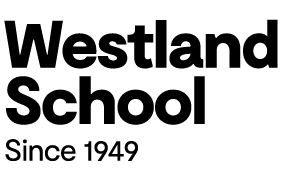
Diversity, Equity, and Inclusion
Why Diversity, Equity, and Inclusivity?
“Voices are becoming audible; faces are becoming visible; and we are realizing, some of us for the first time, how many silences there have been in the past, how many blank spaces in our history. We may have looked too long from monological points of view; we may have assumed consensus where it did not exist. Today we are being made sharply aware of multiplicity. We are discovering the range of perspectives that must be taken into account as we work to remake community, as we strive to achieve a common ground. ”
It has never been more important in today’s political and social climate that Westland School state its commitment to diversity, equity, and inclusivity. Since its inception in 1949, Westland’s dedication to diversity has been strong and resolute, inherent in our position as a leader in progressive education and reflected in our history.
Fundamental to our approach to progressive education is the concept of pluralism. Progressive educator John Dewey understood that social and educational situations must be created if we are to reap the benefits of our differences, and that a person living without connection to others with different experiences and viewpoints is unlikely to achieve true freedom of thought or to reach their full potential. “Diversity of stimulation means novelty, and novelty means challenge to thought,” he wrote. Diversity cannot develop when there are “rigid class lines preventing adequate interplay of experiences.” Real democracy needs “reciprocity of interest.”
Progressive education at Westland is an educational methodology characterized by active and experiential learning, open dialogue consisting of both talking and listening, and meaningful problem posing and solving. But its other--equally important--focus is the development of democratic citizens. At its heart, progressive education is an engagement of people--of all people. Starting in Group One, students begin by studying people’s differences and similarities, so that by Group Six, they are exploring the different dimensions of self, recognizing unfairness including historical and social injustices. They empower themselves to organize and take action. Westland teaches students to recognize, honor, and utilize differences and similarities.
An invitation to be part of Westland is an invitation to engage. This engagement affects what happens in the classroom, within the home, and in the world beyond the school gates. Westland aims to represent progressive education at its best: an education for the nurturing of what Dewey called “an articulate public.”
